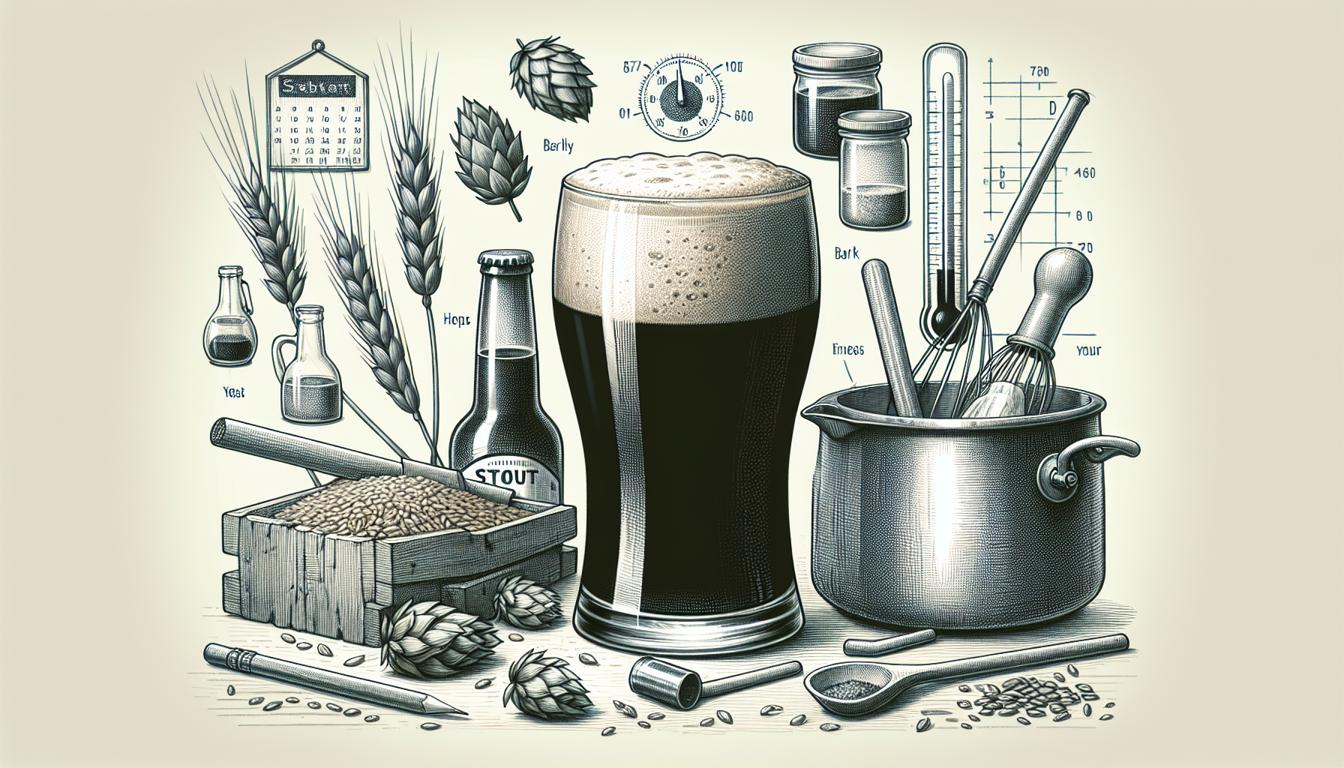When it comes to fermenting apples, there are two main products that come to mind: apple cider and apple cider vinegar. While both are derived from apples and involve the process of fermentation, there are some key differences between the two that might not be immediately obvious. In this blog post, we’ll explore these differences, discuss the various uses and benefits of each, and dive into my own personal experiences with brewing and consuming these two delicious apple-based products.
The main difference between apple cider and apple cider vinegar is that apple cider is a sweet, non-alcoholic beverage made from apples, while apple cider vinegar is a sour, acidic liquid that is formed by fermenting apple cider.
1. The Basics of Apple Cider
Apple cider is a non-alcoholic beverage made by pressing apples to extract their juice. It can be enjoyed fresh, or it can be fermented to create hard cider, which does contain alcohol. Apple cider is typically sweet and tangy, with a cloudy appearance due to the presence of apple pulp.
My Experience with Apple Cider
My love for apple cider dates back to my childhood, when I would eagerly await the arrival of fall and the accompanying apple harvest. There’s nothing quite like a glass of fresh, cold apple cider to celebrate the season. As I grew older and began experimenting with brewing, I also started making my own hard cider, which allowed me to appreciate the complexity and variety of flavors that can be achieved through fermentation.
2. The Basics of Apple Cider Vinegar
Apple cider vinegar (ACV) is a sour, acidic liquid that is formed by fermenting apple cider. The fermentation process involves the conversion of apple cider’s natural sugars into acetic acid, which gives the vinegar its characteristic tartness. ACV is commonly used as a condiment or ingredient in recipes, as well as for its various health benefits.
My Experience with Apple Cider Vinegar
My first introduction to apple cider vinegar came in the form of a home remedy for an upset stomach. I was skeptical at first, but I quickly became a believer in its healing properties after experiencing firsthand how effective it can be. Since then, I’ve incorporated ACV into my daily routine, using it as a natural cleaning agent, a salad dressing ingredient, and even as a hair rinse.
3. The Fermentation Process
While both apple cider and apple cider vinegar are products of fermentation, the process differs slightly between the two.
Apple Cider Fermentation
When making apple cider, apples are pressed to extract their juice. This juice is then left to ferment, either through the action of naturally occurring yeasts or by the addition of commercial yeast strains. Fermentation typically takes anywhere from a few days to several weeks, depending on the desired level of sweetness and flavor complexity.
Apple Cider Vinegar Fermentation
To make apple cider vinegar, the fermentation process is taken a step further. After the initial fermentation of apple cider, a second fermentation occurs, during which acetic acid bacteria convert the alcohol in the cider into acetic acid. This process can take several weeks to a few months, and results in the formation of the sour, acidic liquid we know as vinegar.
4. Health Benefits
Both apple cider and apple cider vinegar boast a variety of health benefits, although they differ in their specific applications.
Apple Cider Health Benefits
Apple cider is rich in antioxidants, particularly polyphenols, which have been linked to a reduced risk of heart disease, cancer, and other chronic illnesses. Additionally, apple cider contains pectin, a type of soluble fiber that can help to lower cholesterol levels and promote healthy digestion.
Apple Cider Vinegar Health Benefits
Apple cider vinegar is often touted for its numerous health benefits, which include aiding in weight loss, lowering blood sugar levels, and improving digestion. While some of these claims require further research to fully substantiate, ACV has been found to contain antimicrobial properties and can help to balance the body’s pH levels.
5. Culinary Uses
In the kitchen, apple cider and apple cider vinegar have distinct roles and can be used in a variety of recipes.
Apple Cider in Cooking
Apple cider can be used as a base for sauces, glazes, and dressings, as well as in marinades for meat and poultry. Its natural sweetness can also be utilized in baking, where it can be used to replace some or all of the sugar in a recipe.
Apple Cider Vinegar in Cooking
Apple cider vinegar is a versatile ingredient that can be used in a wide range of dishes. Use it to add acidity and tang to salad dressings, marinades, and pickles, or as a deglazing liquid when sautéing vegetables or cooking meat. ACV can also be used in baking, where its acidity reacts with baking soda to create a tender, moist crumb.
6. Other Uses
Aside from their culinary applications, both apple cider and apple cider vinegar have a number of other practical uses.
Apple Cider Uses
Apple cider is a popular ingredient in natural beauty treatments, such as facial masks and hair rinses. It can also be added to baths for a soothing and fragrant soak, or used as a natural air freshener.
Apple Cider Vinegar Uses
Apple cider vinegar has a wide range of uses outside the kitchen, including as a natural cleaning agent, a hair rinse to remove product buildup, and a skin toner to help balance pH levels. It can also be used as a natural remedy for various ailments, such as indigestion, sore throats, and sunburns.
7. Storage and Shelf Life
The storage and shelf life of apple cider and apple cider vinegar differ, with ACV boasting a significantly longer lifespan.
Apple Cider Storage and Shelf Life
Apple cider should be refrigerated and consumed within a week or two of opening, as it can spoil if left unrefrigerated. Unopened bottles of apple cider can be stored in a cool, dark place for several months, but it’s best to enjoy them as fresh as possible for optimal flavor.
Apple Cider Vinegar Storage and Shelf Life
Apple cider vinegar has a much longer shelf life than apple cider, thanks to its high acidity. Unopened bottles of ACV can be stored indefinitely at room temperature, while opened bottles will last for several years if stored in a cool, dark place. Over time, ACV may develop a cloudy appearance, but this is simply the result of harmless sediment and does not affect its quality or taste.
8. DIY Brewing: Making Your Own Apple Cider and Apple Cider Vinegar
For those interested in taking their love for apple cider and apple cider vinegar to the next level, both can be made at home with a bit of patience and experimentation.
Making Apple Cider
To make your own apple cider, you’ll need a large quantity of apples, a cider press, and a fermentation vessel. After pressing the apples to extract their juice, simply leave the juice to ferment, either naturally or with the addition of commercial yeast. Once fermentation is complete, strain and bottle your cider, and enjoy!
Making Apple Cider Vinegar
To make apple cider vinegar, start with a batch of apple cider. Add a “mother” culture, which is a combination of acetic acid bacteria and cellulose, and allow the mixture to ferment in a dark, cool place. Over time, the bacteria will convert the alcohol in the cider into acetic acid, resulting in vinegar. Once the desired level of acidity is reached, strain and bottle your ACV.
9. The Verdict: Apple Cider vs Apple Cider Vinegar
While both apple cider and apple cider vinegar have their unique qualities and uses, they are ultimately two distinct products. Apple cider is a sweet, non-alcoholic beverage that can be enjoyed on its own or incorporated into recipes, while apple cider vinegar is a sour, acidic liquid that has a wide range of culinary and practical applications.
#
Conclusion
The main difference between apple cider and apple cider vinegar lies in their respective fermentation processes, taste profiles, and uses. To sum up the key points discussed in this post:
1. Apple cider is a sweet, non-alcoholic beverage made from apples.
2. Apple cider vinegar is a sour, acidic liquid formed by fermenting apple cider.
3. The fermentation process differs between the two products.
4. Both apple cider and apple cider vinegar have various health benefits.
5. Each has unique culinary applications and can be used in a variety of recipes.
6. Both products have practical uses outside the kitchen.
7. Storage and shelf life differ, with apple cider vinegar being more shelf-stable.
8. DIY brewing enthusiasts can make their own apple cider and apple cider vinegar at home.
9. The two products are distinct and offer different flavors and uses.
10. Ultimately, it’s up to individual preference and needs when deciding which product to use and enjoy.
FAQs
Can you substitute apple cider vinegar for?
It depends on what you are substituting for. Apple cider vinegar can be used as a substitute for some types of vinegar in recipes, but may not work in place of other ingredients such as lemon juice or white wine vinegar. It is best to research specific substitutions and their effects on the recipe before making any substitutions.
What can I substitute for apple cider?
You can substitute apple juice or white grape juice for apple cider in most recipes.
Is there a difference between apple cider vinegar and raw apple cider vinegar?
No, there is no difference between apple cider vinegar and raw apple cider vinegar. The term “raw” simply refers to vinegar that has not been pasteurized or filtered.
Is apple cider the same thing as apple cider vinegar?
No, apple cider and apple cider vinegar are not the same thing. Apple cider is a non-alcoholic drink made from pressed apples, while apple cider vinegar is made from fermented apple cider and has a sour taste.
Can you make apple cider from apple cider vinegar?
No, you cannot make apple cider from apple cider vinegar. Apple cider vinegar is made by fermenting apple cider, so it is already a fermented product. To make apple cider, you need fresh apples that are pressed to extract the juice, which is then fermented to create the cider.
What’s the difference between raw apple cider vinegar and apple cider vinegar?
Raw apple cider vinegar is unfiltered and unpasteurized, which means it contains the “mother” – a cloudy, stringy substance that contains beneficial bacteria and enzymes. Regular apple cider vinegar has been filtered and pasteurized, which removes the mother and some of the beneficial components.


-recipe.jpg)

